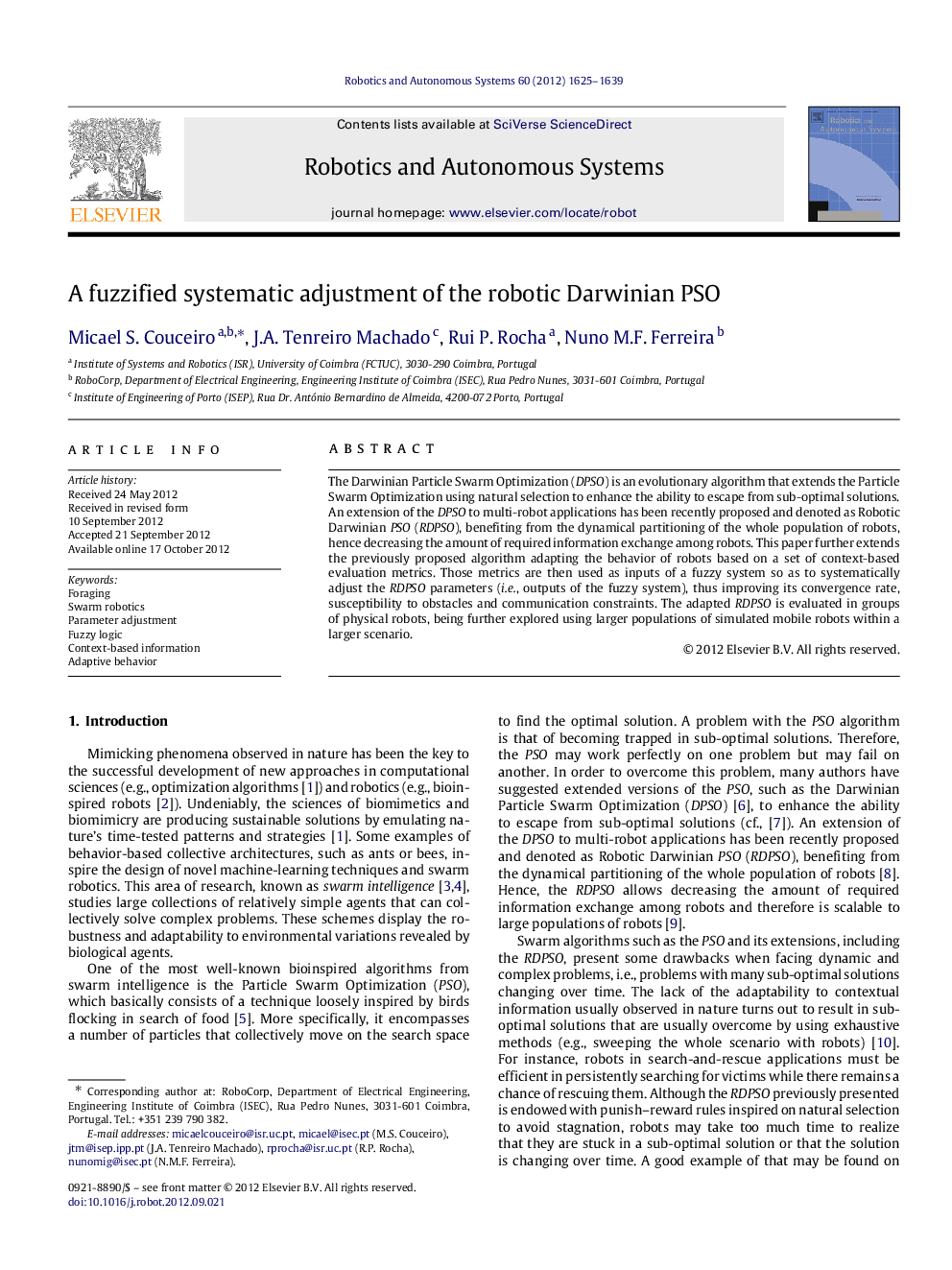| Article ID | Journal | Published Year | Pages | File Type |
|---|---|---|---|---|
| 411834 | Robotics and Autonomous Systems | 2012 | 15 Pages |
The Darwinian Particle Swarm Optimization (DPSO) is an evolutionary algorithm that extends the Particle Swarm Optimization using natural selection to enhance the ability to escape from sub-optimal solutions. An extension of the DPSO to multi-robot applications has been recently proposed and denoted as Robotic Darwinian PSO (RDPSO), benefiting from the dynamical partitioning of the whole population of robots, hence decreasing the amount of required information exchange among robots. This paper further extends the previously proposed algorithm adapting the behavior of robots based on a set of context-based evaluation metrics. Those metrics are then used as inputs of a fuzzy system so as to systematically adjust the RDPSO parameters (i.e., outputs of the fuzzy system), thus improving its convergence rate, susceptibility to obstacles and communication constraints. The adapted RDPSO is evaluated in groups of physical robots, being further explored using larger populations of simulated mobile robots within a larger scenario.
► A set of context-based evaluation metrics are proposed to assess the RDPSO behavior. ► Two physical platforms are used to further study particle swarm concepts. ► The metrics are used as inputs of a fuzzy system to adapt the RDPSO parameters. ► The adapted RDPSO is evaluated in groups of physical and virtual robots. ► Experimental results show that the adaptive RDPSO presents an improved convergence.
